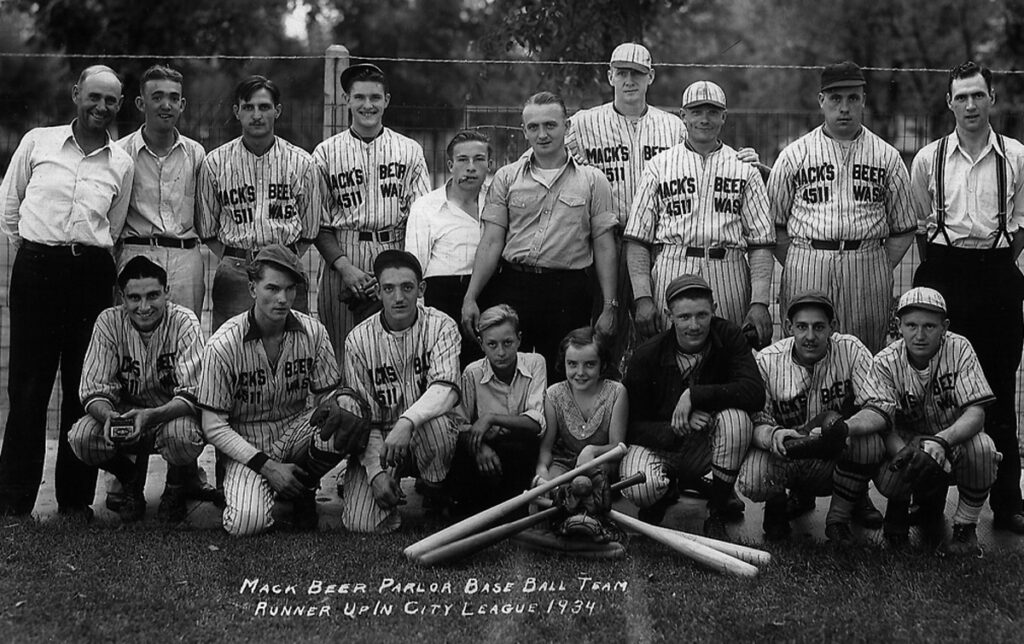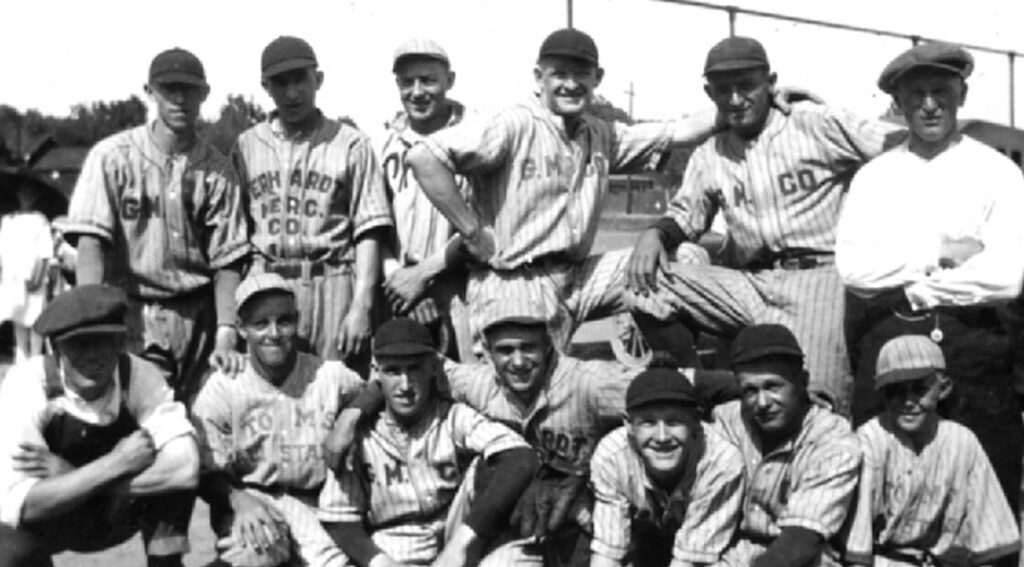By Mary Lou Egan
The faces in the photos say it all. Baseball was a chance to be outside with the guys after a long week working inside a factory or meat-packing plant. There was beer afterward and reliving the satisfaction of a perfectly hit ball or a double play. Baseball was fun.
Andy Jackson Jr. remembered, “The lodges had teams, all the packing houses, Armour & Company, Western Packing and Burkhardt, each had a team. Lots of people played for several teams.” Large industries, like the smelters or the brickyards, provided organized sports as a wholesome activity and a way for men of different ethnic groups to socialize with each other.

It also prevented cliquiness that could interfere with productivity. Baseball offered a “level playing field” where an athlete was judged by his ability rather than his job or cultural background. For many recent arrivals, playing baseball signified that you were an American.
For blue-collar Globeville teams, defeating squads from “better” parts of town was particularly delicious. There were many local squads backed by independent neighborhood businesses. The name of the establishment was prominently printed on players’ jerseys and was good advertising.
The Gerhardt Mercantile Company, owned by Carl Gerhardt, supported a team. To Gerhardt, a Volga-German immigrant, sponsoring his company’s team must have seemed the epitome of an American success story. Men enjoyed playing on Sundays when their families could watch. Wives, children and sweethearts would bring a picnic basket to the neighborhood fields at Argo Park, at 45th Avenue and Leaf Court, and at 49th Avenue and Washington.

Teams also traveled to 6th Avenue and Broadway, City Park or 23rd Avenue and Welton. Of course, young boys would organize games in playgrounds, alleys and vacant lots. Over the years, the excitement of baseball has diminished as football, basketball and soccer compete for players and viewers.
But the sport still offers the opportunity to learn teamwork, cooperation and the chance to compete outdoors. Young players who’d like to develop their skills can sign up for summer leagues at the Broadway Recreation Center, 5090 Broadway. Check denvergov.org/recreation for more information.
Mary Lou Egan is a fourth-generation Coloradan who loves history. You can reach her at maryloudesign@comcast.net.

Be the first to comment